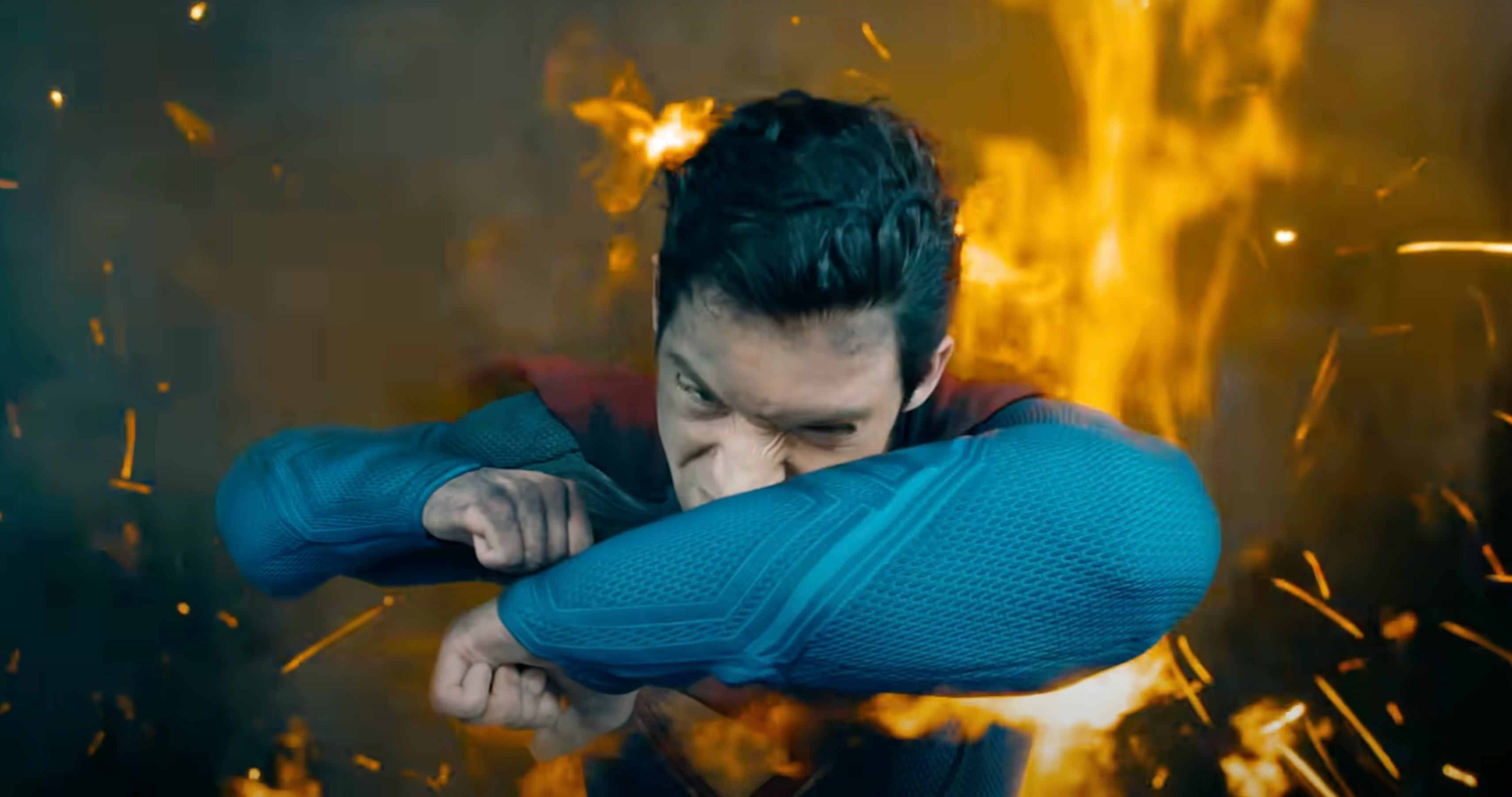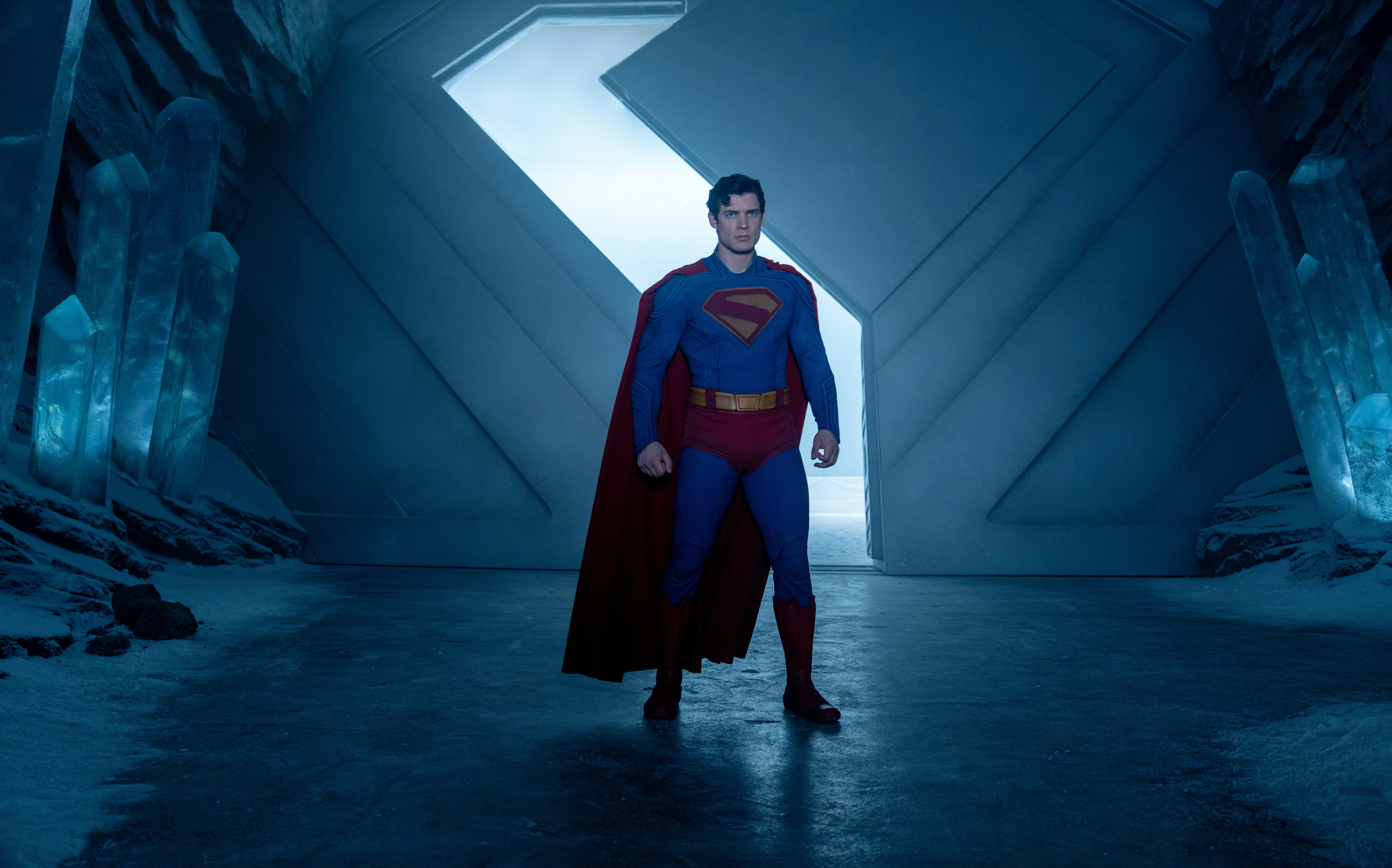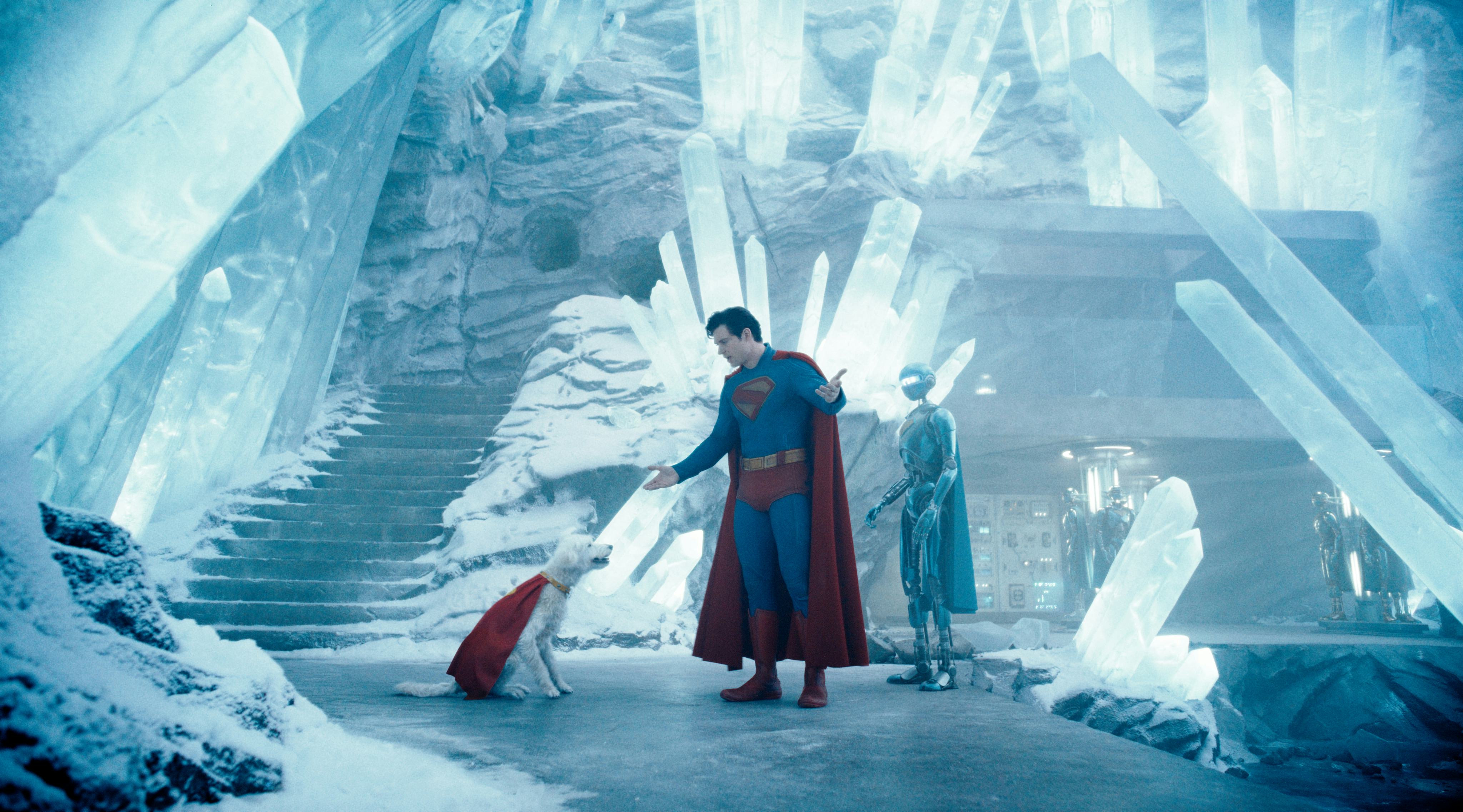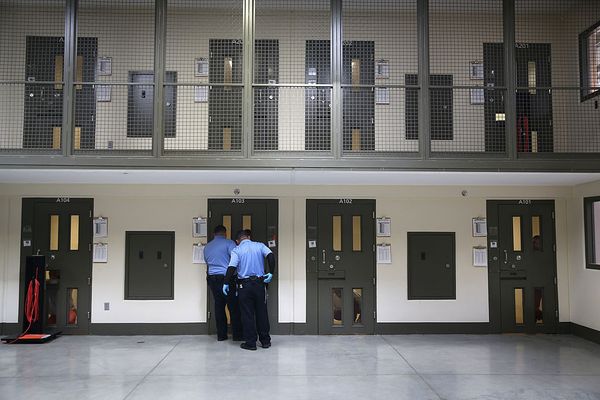
In most versions of Superman — on screen and off — the Man of Steel is torn between two worlds. On the one hand, he’s loyal to his adoptive home of Earth. On the other hand, in the pages of the comics and various onscreen incarnations, he often thinks wistfully of a life he could have led on Krypton had his birth parents, Jor-El and Lara, not perished in the cataclysm that engulfed his home planet forever. And now, with the new James Gunn-directed Superman, there’s a new wrinkle to Jor-El and Lara, one only suggested by previous comics canon. In fact, the most jarring moment in the new Superman is the one thing most of us take for granted about the character’s origin.
Here’s what the new Superman has changed about the Man of Steel’s famous origins and why director James Gunn tells Inverse it had to happen.
Spoilers for Superman ahead.
Superman Ending Explained

Throughout the new Superman, our titular hero is comforted by a holographic recording of his parents on Krypton, the kindly Jor-El and Lara, played by Bradley Cooper and Angela Sarafyan. As in the Christopher Reeve films and countless comics, Jor-El and Lara are representations of a platonic ideal of wonderful parents, as well as seeming like gods who have gifted the Earth with their only son. The recording urges Superman to make a home on Earth and become an aspirational figure to its residents — something which Superman takes to heart.
But then, early in the film, that feeling changes. Lex Luthor breaks into Superman’s Fortress of Solitude and steals the recording, and with the help of María Gabriela de Faría’s The Engineer, manages to decrypt the scrambled final part of the message. That part of the recording from Jor-El and Lara reveals that they’re actually horrible alien conquerors, and they actually want Kal-El to rule the Earth, not protect it.
“It's happened before in the comics,” Gunn tells Inverse about this twist. “It’s few and far between, but it's happened.”
There are a few comic book inspirations Gunn is referencing here. One is the concept of “Mister Oz,” an alternate version of Jor-El who ends up on Earth before Kal-El and becomes an evil mastermind. The SyFy Channel prequel series Krypton sort of gestured at this idea, as it had a baby version of Jor-El who was adopted by the villain Brainiac, suggesting another alternate story in which Jor-El would be a villain, and perhaps, not even Superman’s father. Meanwhile, the 2022 alternate universe story, Flashpoint Beyond, also revealed that a different version of Jor-El was planning to invade Earth, and create a new home for Kryptonians.
Another inspiration for this twist could be the 2008-2009 New Krypton storyline in which 100,000 Kryptonians end up living on Earth, and many want to utterly rule the planet. Ditto All-Star Superman (2005-2008), in which one story finds a Kryptonian couple (somewhat coded as Jor-El and Lara) taking over for Superman in his absence, and ruthlessly wielding their powers over humankind. In both Man of Steel and Smallville, an AI hologram of Jor-El (played by Russell Crowe and Terrance Stamp, respectively) seems cold and out of touch. Some fans even suggested that in Man of Steel, Jor-El’s Kryptonian codex could be viewed as a weapon that could erase the people of Earth. Though it should be noted that the Russell Crowe Jor-El tells Superman (Henry Cavill) very clearly “you can save them all,” meaning he values the lives of the people of Earth.

There are a few other examples, and all the examples of an evil Jor-El and/or Lara exist outside of “regular” canon. So as Gunn admits, this is a pretty big swing. Most of us would never have assumed Superman’s birth parents could be so horrible. And yet, Superman’s family is the key to the entire movie.
“I didn't want to take something away from him that was elemental to who he was, but I did want him to deal with a personal crisis,” Gunn explains, referring to the big twist.
That crisis is kicked off when Lex Luthor circulates the recording to the media, shattering Superman’s reputation and his belief in his own values, which had been heavily shaped by the recording. At his lowest point, Superman turns himself over to the authorities and is imprisoned in Lex Luthor’s pocket-dimension prison. With Superman out of the way, Lex Luthor can embark on his quest to use Boravia’s invasion of its impoverished neighboring nation as a means to create his own country. But with Mister Terrific and Lois Lane’s help, Superman saves the day — defeating Ultraman, stopping a black hole from ripping through Metropolis, and squashing Lex Luthor’s scheme.
However, Superman wouldn’t have been able to rally without a pit stop over in Smallville, where Ma and Pa Kent reignite his belief in himself. To Gunn, that sequence was essential for the massive canon change to work.
“I wanted at the heart of this story to be about Superman the human being and him struggling with something about the way he sees himself and his identity crisis,” Gunn says, “and then finding his new faith in himself through that process. So, the easiest way was to change what we expect about the mythology of Superman. But, in a way that doesn't really hurt him because he still has his foundation in Ma and Pa Kent.”
It all comes full circle at the end when a battered but triumphant Superman returns to the Fortress of Solitude to heal. The robots ask him if he wants to play the recording, and he assents, but what plays isn’t the recording of Jor-El and Lara, they’re home videos of Clark growing up with Ma and Pa Kent. It’s a sweet, wholesome capper to Superman’s identity crisis, and hammers in the film’s message: Even Superman is just the hero he chooses to be.
How This Twist Changes Superman Forever

Over the years, different interpretations of the Super-origin story have created various nuances to the backstory. In fact, in 1986’s famous Man of Steel comics reboot, written and drawn by John Byrne, Ka-El is technically born on Earth. In that version, the embryo of the super-child emerges on Earth, making him a citizen of Earth first, and thus, strengthening his ties to his human parents, Jonathan and Martha Kent. This idea is very prevalent in the new Superman film, and the fact that Ma and Pa Kent are still alive and serve as Superman’s moral conscience defines the arc of the film.
For Gunn, this concept is the whole point.
“I wanted to portray Mom and Pop Kent a little bit differently than they have been in movies or in TV,” Gunn says. “I was excited to write them and make them a part of the story from the beginning. There are plenty of stories in the comics where they're not passed away, they're around a lot, so I wanted to include that.”
Essentially, Gunn didn’t set out to change things about Superman’s family just for the sake of being provocative. Instead, Superman’s roots in Smallville are central to understanding the story of the new film. The idea that Jor-El and Lara are a little bit evil may be new, but for Gunn, the new Superman is about rendering the character in a new way, but also not changing things too much.
“I think that I was really careful with what I changed or didn't change about Superman,” Gunn says. “I love the character.”







